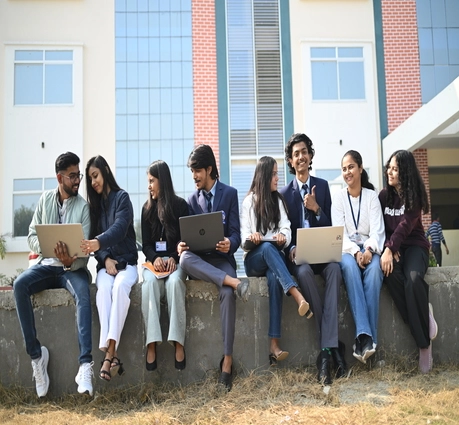The Diploma in Computer Science & Engineering (CSE) is a career-focused program that equips students with practical, industry-relevant skills in just 3 years/2 years. Designed for hands-on learning, this course covers programming fundamentals (C, C++, Python, Java), web development, database management, networking, and emerging technologies like cloud computing and IoT basics. Through project-based learning, lab sessions, and industry internships, students gain real-world experience in software development, system administration, and IT support. With a strong emphasis on job-ready skills, graduates can immediately enter the workforce as software developers, network technicians, system analysts, or IT support specialists, or pursue higher studies in engineering. The program's industry-aligned curriculum and placement assistance open doors to opportunities in IT companies, startups, and tech-driven organizations. Start your tech career faster with this practical, skill-oriented diploma that puts you on the path to success in the digital world!
Duration of programme
Level of Study

Programming Languages – Learn foundational languages like C, C++, Python, and Java, focusing on logic building, problem-solving, and coding skills.
Computer Fundamentals – Basics of hardware, software, operating systems, number systems, and how a computer works.
Data Structures and Algorithms – Study how data is organized and manipulated using arrays, linked lists, stacks, queues, trees, and sorting/searching algorithms.
Database Management Systems (DBMS) – Learn how to design, manage, and use databases using SQL and concepts like normalization, keys, and relationships.
PO-1-Engineering Knowledge: Apply fundamental concepts of mathematics, programming, and
computing to solve technical problems in software and hardware systems.
PO-2-Problem Analysis: Identify, formulate, and analyze computing problems using
principles of computer science and engineering.
PO-3-Design/Development of Solutions: Design and develop effective software solutions using
appropriate algorithms, tools, and methodologies to meet specified
requirements.
PO-4-Modern Tool Usage: Create, select, and apply modern computing tools and
technologies for system design, analysis, and implementation.
PO-5-Engineering Ethics and Safety: Understand and apply professional ethics, cybersecurity practices,
and legal responsibilities in computing solutions.
PO-6-Teamwork and Communication: Function effectively as an individual and in multidisciplinary
teams, communicating technical concepts clearly.
PO-7-Project Management: Apply project management principles to computing projects while
considering economic and environmental factors.
PO-8-Lifelong Learning: Recognize the need for continuous learning and adapt to new
technologies and computing paradigms.
PO-9-Entrepreneurship: Identify opportunities and develop technical solutions for
entrepreneurial ventures and business needs.
PO-10-Societal and Environmental Responsibility: Understand the impact of computing solutions on society and
environment, and develop sustainable systems.
10th with 45% marks for Gen. and 40% for OBC/SC/ST,
For I year-Passed 10th/SSC/Matric